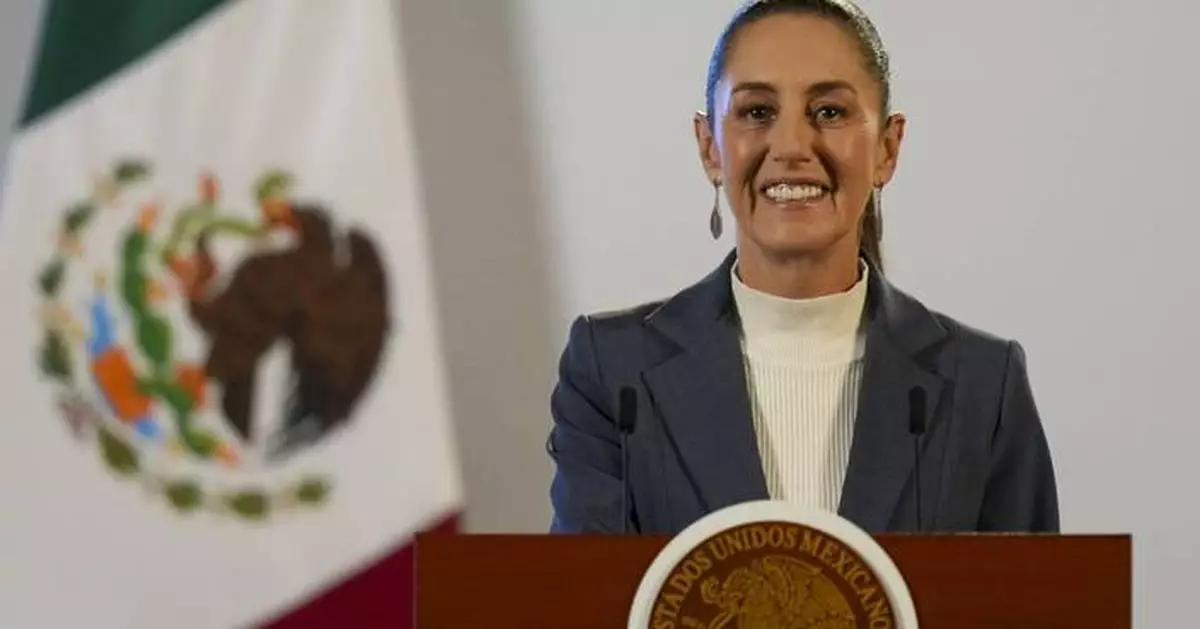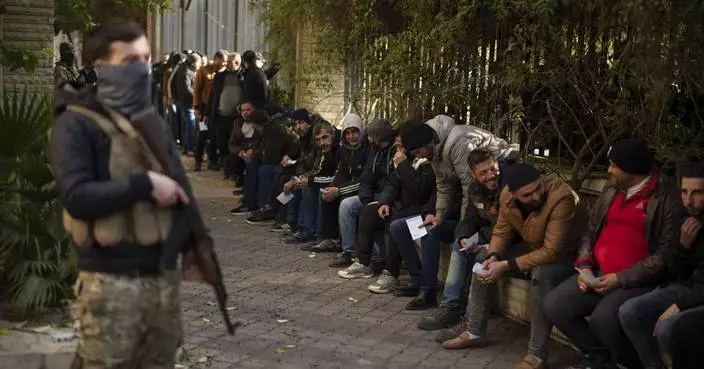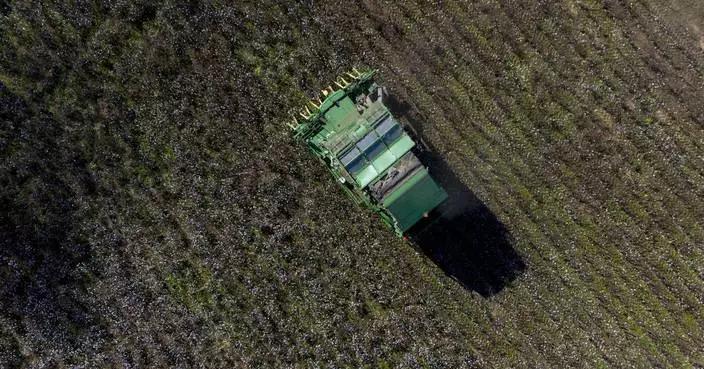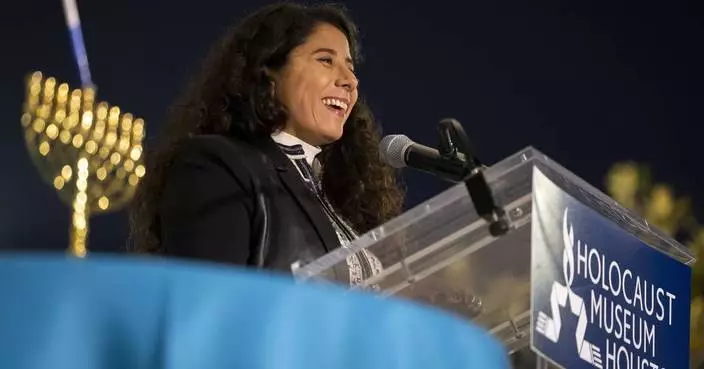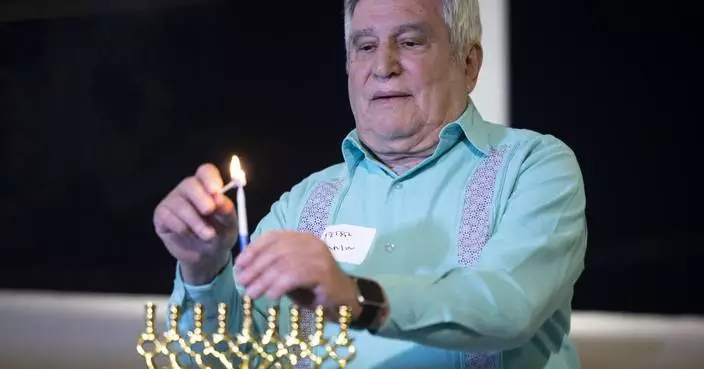MEXICO CITY (AP) — Mexico’s new president laid out a plan Tuesday to combat drug cartel violence, but analysts say it appears to be largely a continuation of previous policy.
President Claudia Sheinbaum said that she plans to increase intelligence and investigative work, but her main focus will apparently remain the “hugs, not bullets” approach used by her predecessor.
Sheinbaum took over last week from her mentor, former President Andres Manuel López Obrador, who largely failed in his own plan to bring down Mexico’s homicide rate. López Obrador refused to confront the cartels, instead relying on the armed forces and appeals to gangs to keep the peace.
“There is a continuity in the militarization of public safety,” Mexican security analyst David Saucedo said. “There will also be a continuation of social programs to try to prevent youths from being recruited by organized crime.”
Sheinbaum's top security official, Omar García Harfuch, said that “we will continue with the strategy begun in the administration of President Andrés Manuel López Obrador, to give priority attention to the poorest families.”
Mike Vigil, a former head of the DEA’s foreign operations, said that the new plan appears to be “more of the same.”
In 2023, Mexico had a homicide rate of about 24 per 100,000 inhabitants, more than four times higher than the U.S. rate. But officials said that they were also worried about extortion, a crime that the cartels have increasingly turned to along with migrant smuggling, to supplement their income.
Sheinbaum blamed the killings in Guanajuato, the state with the highest number of homicides in Mexico, on low wages.
“Clearly, in Guanajuato there is a development model that has failed," she said.
But Saucedo said that poverty doesn't explain it. Guanajuato is an industrial and farming hub where drug use is relatively high, but it also has rail and highway links that cartels are fighting over, because they are used to move drugs toward the border with the United States.
“According to that logic, the entire country would have the same problem, because there are low wages in the whole country,” Saucedo said.
In the last weeks of López Obrador's presidency, Mexico's Congress formally handed the National Guard over to the control of the Defense Department. The 120,000-member force was originally supposed to be under civilian command, but had already been largely trained and recruited by the army.
The shortcomings of that militarized approach is evident in provincial cities and towns, where the National Guard performs set-piece patrols and establishes security cordons like soldiers, but do little on-the-street investigative work like police, arrest relatively few people and build even fewer criminal cases.
Inhabitants of rural areas say National Guard officers often refuse to leave their bases until they get orders from headquarters, even if crimes are being committed outside. And a good part of the National Guard's force is currently assigned to rounding up migrants before they reach the U.S. border, not fighting crime.
García Harfuch pledged Tuesday to have the guard function more as a police force, though that is not their training.
He pledged to create a sort of national security academy to train law enforcement, and establish an office to integrate intelligence on the gangs gathered by the army, navy and federal investigators.
“The need is to convert the intelligence the country has, into investigations,” said García Harfuch, who formerly served as Mexico City's police chief.
Sheinbaum faces an ongoing problem, as illustrated by the killing last week of the mayor of Chilpancingo, the capital of southern Guerrero state. The mayor's head was apparently severed and left on the roof of a pickup truck in the gang-dominated city.
And violence in the northern state of Sinaloa has heated up intensely after two top Sinaloa cartel capos flew to the United States in July, where they were detained. The two capos were from different factions of the cartel, and the idea that one of the capos forced the other onto the plane has sparked infighting.
So far this year, from January to August, homicides were down 10.7% from their peak in the same period of 2018, but that year was an outlier because of cartel turf battles. The 2024 figures on homicides in the first eight months of the year were 8.6% higher than they were in 2017, under López Obrador's predecessor, Enrique Peña Nieto.
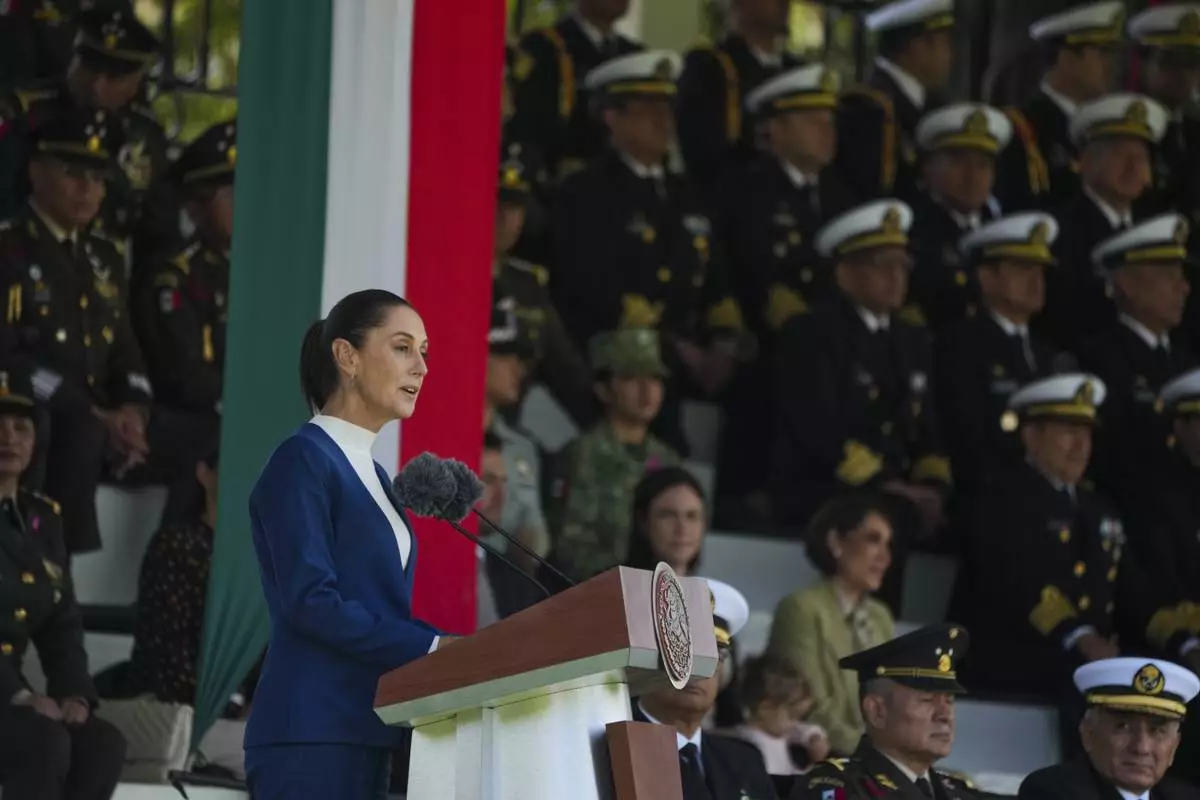
Mexican President Claudia Sheinbaum addresses the Armed Forces at Campo Marte in Mexico City, Thursday, Oct. 3, 2024. (AP Photo/Fernando Llano)
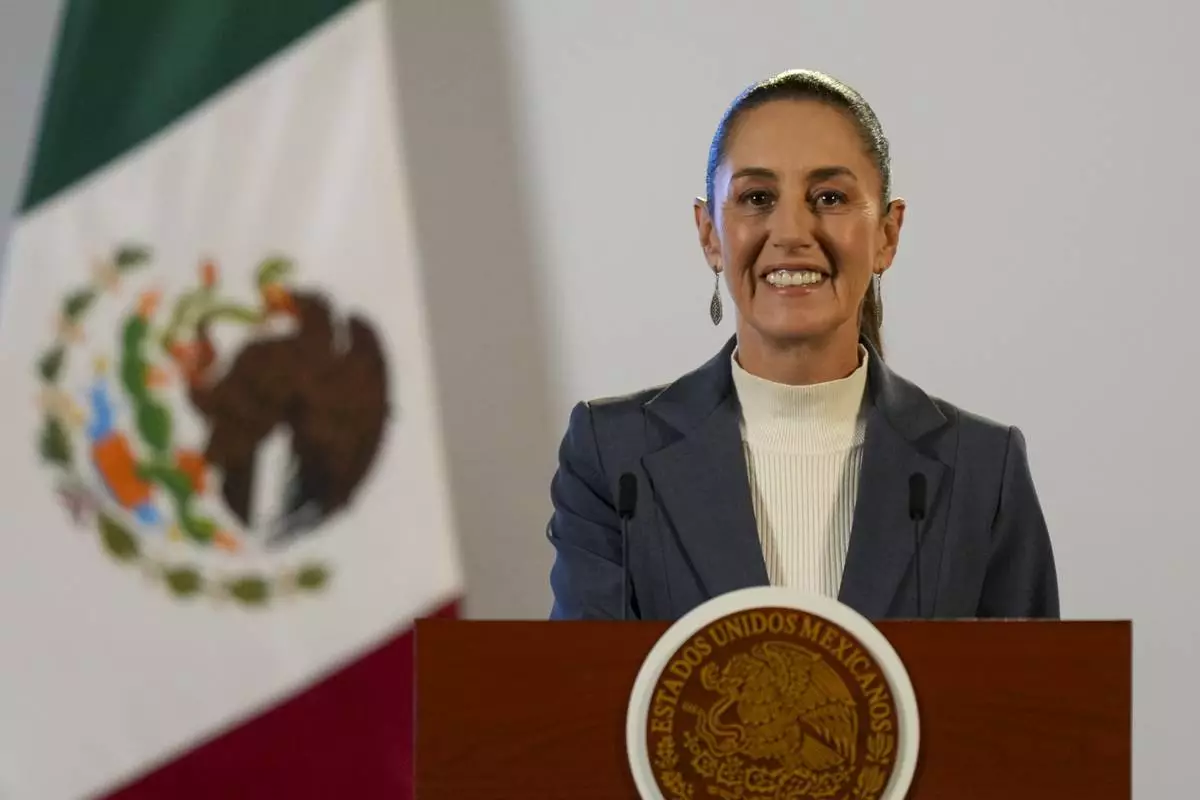
FILE - Mexican President Claudia Sheinbaum gives a media briefing from the National Palace in Mexico City, Oct. 2, 2024, the morning after her inauguration. (AP Photo/Fernando Llano, File)
TEL AVIV, Israel (AP) — A rocket fired from Yemen hit an area of Tel Aviv overnight, leaving 16 people injured by shattered glass, the Israeli military said Saturday, days after Israeli airstrikes hit Houthi rebels who have been launching missiles in solidarity with Palestinians in Gaza.
Another 14 people sustained minor injuries as they rushed to shelters when air raid sirens sounded before dawn Saturday, the military said.
The Houthis issued a statement on Telegram saying they had aimed a hypersonic ballistic missile at a military target, which they did not identify.
“A flash of light, a blow and we fell to the ground. Big mess, broken glasses all over the place,” said Bar Katz, a resident of a damaged building.
The attack came after Israeli airstrikes on Yemen’s Houthi-held capital, Sanaa, and port city of Hodeida killed at least nine people Thursday. The Israeli strikes were in response to a Houthi long-range missile that hit an Israeli school building. The Houthis also claimed a drone strike targeting an unspecified military target in central Israel on Thursday.
Israel's military says the Iran-backed Houthis have launched more than 200 missiles and drones during the Israel-Hamas war in Gaza. The Houthis have also attacked shipping in the Red Sea and Gulf of Aden and say they won’t stop until there is a ceasefire in Gaza.
The Israeli strikes Thursday caused “considerable damage” to the Houthi-controlled Red Sea ports that will lead to the "immediate and significant reduction in port capacity,” U.N. spokesman Stephane Dujarric said. The Hodeida port has been key for food shipments into Yemen in its decade-long civil war.
U.N. Secretary-General Antonio Guterres said both sides’ attacks risk further escalation in the region.
Mourners in Gaza held funerals for 19 people — 12 of them children — killed in Israeli strikes on Friday and overnight.
One strike hit a residential building in the built-up Nuseirat refugee camp in central Gaza, killing at least seven Palestinians, including five children and one woman, and injuring 16 others, health officials said.
In Gaza City, a strike on a house killed 12 people, including seven children and two women, according to Al-Ahli Hospital where the bodies were taken.
One man cradled a tiny shroud-wrapped body as mourners gathered at the hospital in Gaza City. Women comforted each other as they wept.
Overall, Gaza's Health Ministry said 21 people had been killed over the past 24 hours.
More than 45,200 Palestinians have been killed in Gaza since October 2023, when a Hamas attack in Israel killed about 1,200 people and triggered the 14-month war. The health ministry does not distinguish between civilians and combatants but has said more than half of fatalities are women and children.
Israel faces heavy international criticism over the unprecedented levels of civilian deaths in Gaza. It says it only targets militants and blames Hamas for civilian deaths because its fighters operate in residential areas.
Gaza's Health Ministry issued an urgent appeal for medical and food supplies to be delivered to Kamal Adwan Hospital in Beit Lahiya in largely isolated northern Gaza, while the hospital director described conditions as dire, as Israel's military presses its latest offensive.
The ministry reported continuous gunfire and Israeli shelling near the hospital, saying “shells have struck the third floor and the hospital’s entrances, creating a state of panic.”
Hospital director Dr. Husam Abu Safiyeh said the facility faced “severe shortages” and asserted that requests for essential medical supplies and ways to maintain oxygen, water and electricity systems "have largely gone unmet.”
He said 72 wounded people were being treated at the hospital.
“Food is very scarce, and we cannot provide meals for the wounded," Safiyeh added. “We are urgently calling on anyone who can provide supplies to help us.”
Aid groups have said Israeli military operations and armed gangs have hindered their ability to distribute aid.
The Israeli military organization dealing with humanitarian affairs for Gaza said Saturday it had led an operation delivering thousands of food packages, flour and water to the Beit Hanoun area in the north. It said trucks with the U.N. World Food Program transported them to distribution centers in the area Friday.
Iran on Saturday said unknown gunmen had killed a local staffer of the Iranian embassy in Syria, the official IRNA news agency said.
Its report quoted foreign ministry spokesman Esmail Baghaei as saying “terrorists” opened fire on Davood Bitaraf’s car last Sunday. It did not say what he did with the embassy.
Baghaei said Iran considers Syria’s interim government responsible for finding and prosecuting those behind the killing. Iran had been a key ally of recently ousted Syrian leader Bashar Assad.
Shurafa reported from Deir al Balah, Gaza Strip. Associated Press writers Elena Becatoros in Majdal Shams, Golan Heights, contributed to this report.
Follow AP’s war coverage at https://apnews.com/hub/israel-hamas-war
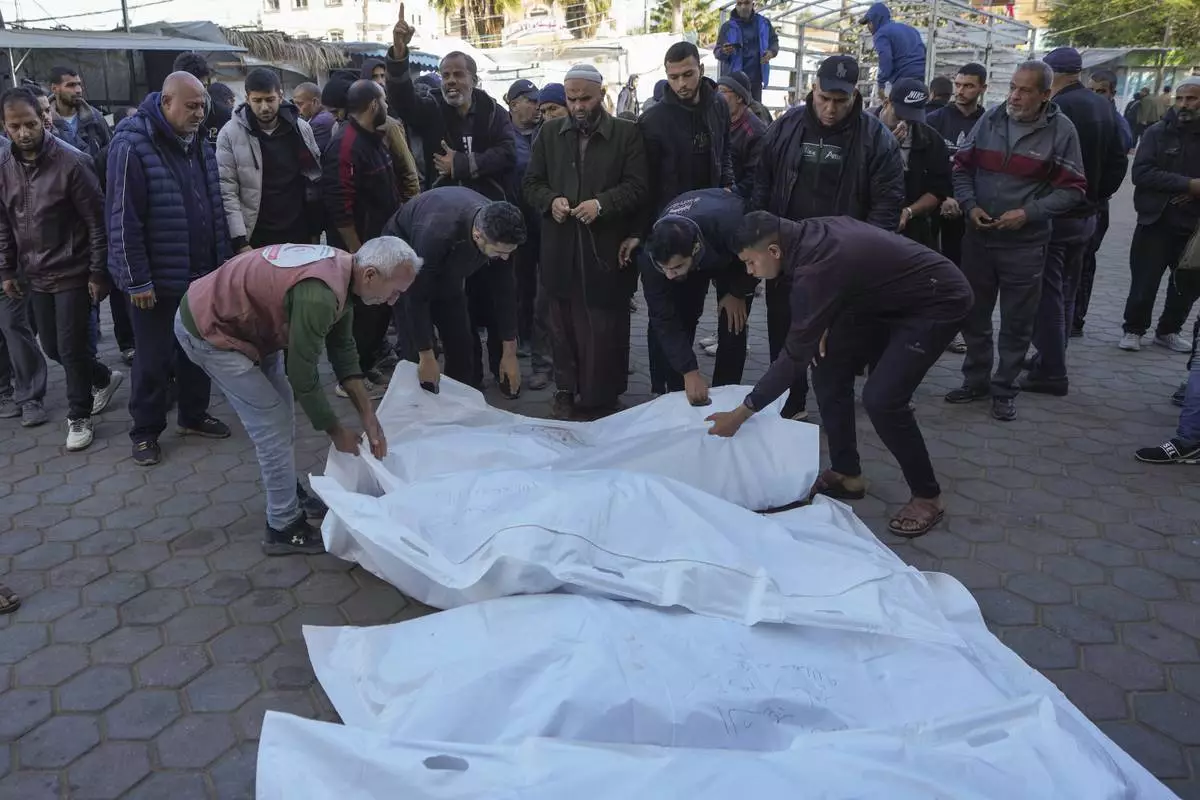
Bodies of victims of an Israeli airstrike at the Nuseirat refugee camp are prepared for the funeral prayer outside the Al-Aqsa Martyrs hospital in Deir al-Balah, Gaza Strip, Saturday, Dec. 21, 2024. (AP Photo/Abdel Kareem Hana)
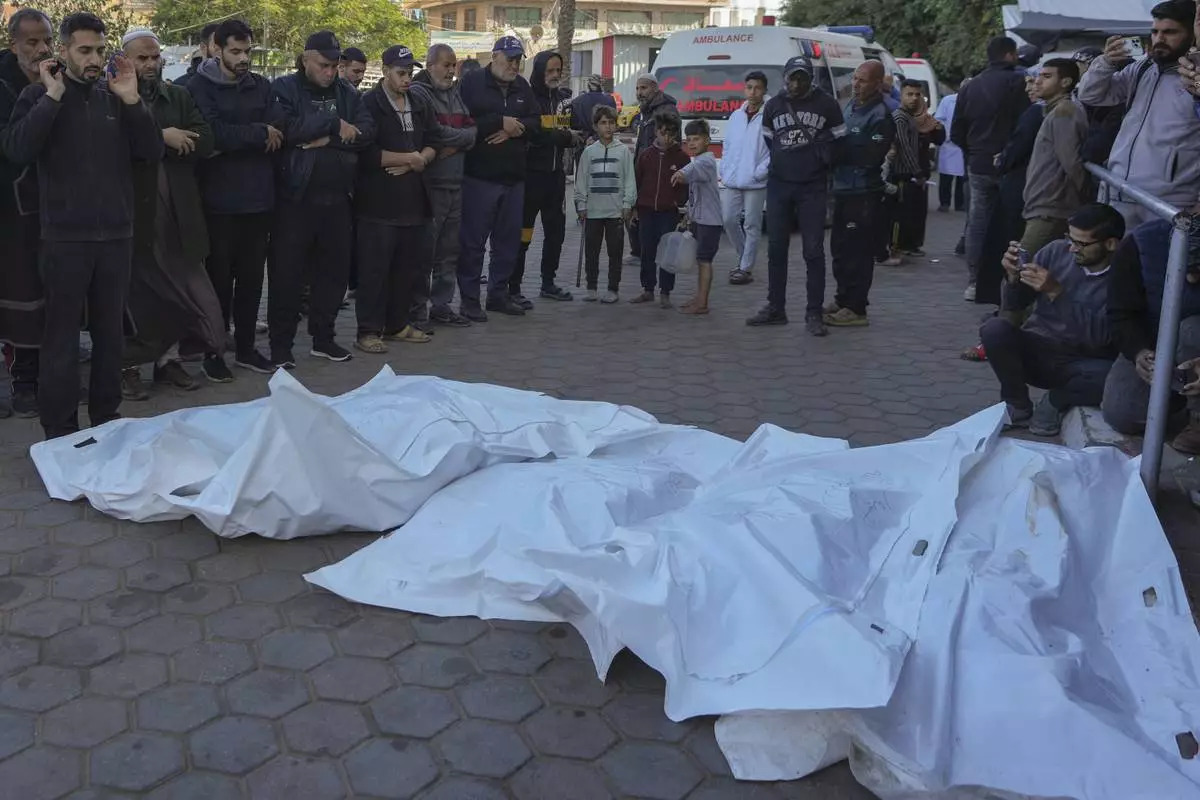
Men pray over the bodies of victims of an Israeli airstrike at the Nuseirat refugee camp during a funeral prayer outside the Al-Aqsa Martyrs hospital in Deir al-Balah, Gaza Strip, Saturday Dec. 21, 2024. (AP Photo/Abdel Kareem Hana)

Bodies of victims of an Israeli airstrike at the Nuseirat arrive at the Al-Aqsa Martyrs hospital before their funeral in Deir al-Balah, Gaza Strip, Saturday, Dec. 21, 2024. (AP Photo/Abdel Kareem Hana)
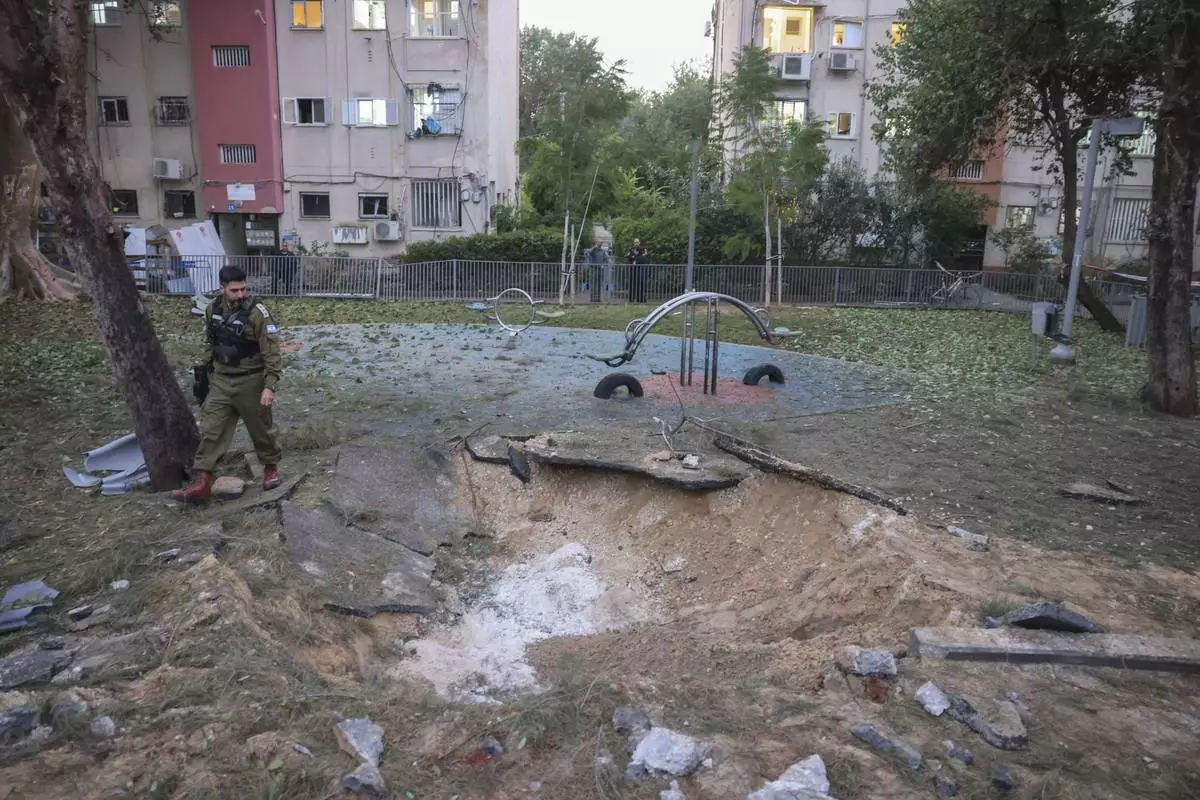
An Israeli soldier observes the site where the missile launched from Yemen landed Jaffa district, in Tel Aviv, Israel, Saturday, Dec. 21, 2024. (AP Photo/Tomer Appelbaum)




